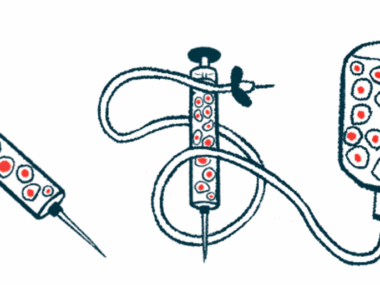HL192 well tolerated in volunteers in Parkinson’s clinical trial
Developers now plan to study treatment in Parkinson’s patients
Written by |

HL192, an experimental oral therapy being developed to treat Parkinson’s disease, was tolerated well by healthy volunteers in a first-in-human clinical trial.
The therapy’s developers — Nurron Pharmaceuticals, working in partnership with Hanall Biopharma and Daewoong Pharmaceutical — said they are planning a trial to test HL192 in people with Parkinson’s. The companies didn’t say when testing in Parkinson’s is expected to begin.
“We are excited to report positive results for our Phase 1 trial, confirming the well-tolerated safety profile of HL192 (ATH-399A) in healthy participants and expect to launch the next clinical trial in people with Parkinson’s disease,” Deog Joong Kim, PhD, Nurron’s CEO, said in a joint press release from the three companies.
Parkinson’s is caused by the progressive loss of nerve cells that are responsible for making the chemical messenger dopamine. HL192, previously called ATH-399A, is designed to be given orally and activate Nurr1, a protein that’s important for the development of these nerve cells. By targeting this protein, the therapy aims to help keep dopamine-producing neurons healthy to counteract the progression of Parkinson’s.
Study results ‘bring hope to millions’
The first-in-human Phase 1 clinical trial launched about a year ago to evaluate the safety and pharmacological properties of HL192 in healthy volunteers. The study enrolled 76 participants; some were given a single dose of the therapy or a placebo, while others took the study medication daily for 12 days.
Results showed an overall positive safety profile. Rates of adverse events (safety issues) were comparable between participants given the active medication and those taking a placebo. Pharmacological data, meanwhile, showed levels remained below what would be expected to cause safety problems, and also indicated that once-daily dosing of the oral treatment will likely be appropriate for testing in Parkinson’s patients.
“We are extremely pleased to announce the completion of the first-in-human study,” said Sean Jeong, MD, CEO of Hanall. “Successfully demonstrating the safety and tolerability in healthy volunteers, including older adults, is a key step in our mission to develop a disease-modifying therapy for Parkinson’s disease. These findings bring hope to millions of patients and their families who are affected by this challenging condition.”
The Phase 1 study was funded by a $1.7 million grant from The Michael J. Fox Foundation (MJFF).
“The Michael J. Fox Foundation remains steadfast in our commitment to accelerate the development of better treatments for the more than 6 million people living with Parkinson’s disease around the world,” said Katharina Klapper, principal of clinical research at MJFF. “The successful completion of the study’s Phase 1 HL192 (ATH-399A) trial marks a meaningful step forward in advancing today’s therapeutic pipeline.”



